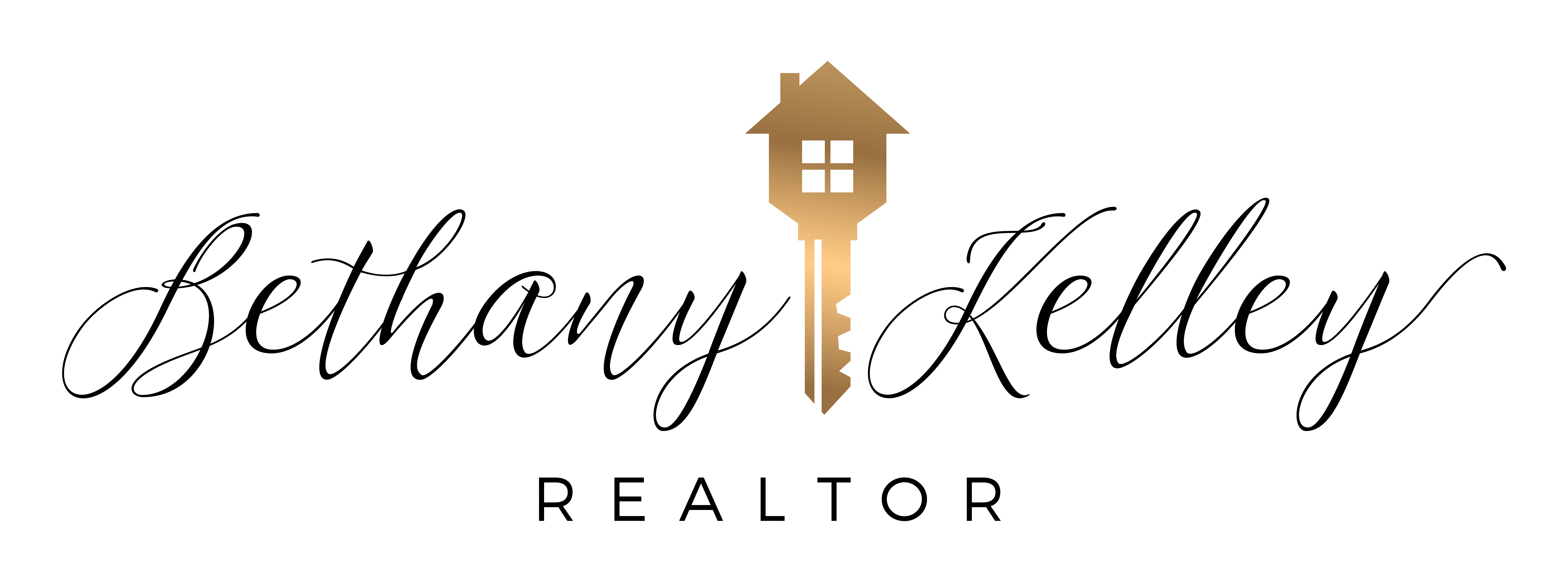2022 is here and with it comes the introduction of my new series, “Mistakes in Real Estate”, that I’ve been working on with my marketing team. Without further ado…
In over 9 years of working as a Realtor® here in Northern Virginia, I’ve encountered so many different scenarios. What remains a constant is that there are a TON of things to consider when buying a new home. It’s so easy to forget critical steps and caveats, especially when you’re a first-time homebuyer or even if you’re a seasoned homebuyer.
Not to worry, though! I am a realtor who has your back! In this post I’ll tackle the common real estate buying mistakes that I work incredibly hard to help all new clients avoid. Use the table of contents below to jump to relevant sections, or read through the entire Buyer Mistakes guide — it’s my hope that by educating the public I can help everyone avoid many of the common pitfalls that can sour an otherwise incredible buying journey.
Table of Contents
Skipping inspections
In this frenetic real estate market, many buyers try to make their offer more appealing to sellers by waving or skipping inspections. In the state of Virginia, this is very risky because Virginia is a “buyer beware” state. This means that there are very few things that a seller actually has to disclose. Buyers here need to do their due diligence before moving forward with the purchase of a home. You can visit the Commonwealth of Virginia’s DPOR page for Residential Property Disclosure Statements to see a list of the many things that buyers should look into before purchasing a home in Virginia, as well as a summary of the most recent Disclosure Statement updates from VirginiaRealtors.org.

The most common inspections in Northern Virginia are a Home Inspection, Radon Test, Termite (or WDO – wood destroying organism) Inspection, Well Inspection, Water Potability Testing (if not on public water), and Septic Inspection (if not on public sewer). Skipping any of these necessary inspections may mean that a buyer ends up with a lot more problems than anticipated when purchasing a home.
A Home Inspection not only alerts a buyer to current or potential problems with a home, but it also allows the buyer to learn how to take care of the home. A buyer may learn where the HVAC filter is located and how often to replace it, how to control a sprinkler system, or even how to adjust the grading of a lot so that water intrusion doesn’t become an issue. A home inspection can often save a buyer from purchasing what may become a “money pit” down the road.
A Radon Test is important for homes with a basement. Northern Virginia has very high levels of radon (an odorless, colorless, invisible gas) and a 48 hour continuous monitoring radon test will assure a buyer that the radon levels in the home are less than 4.0 pCi/L. Since Radon is a known carcinogen, it’s important to make sure that the levels in a home are safe.
A Termite (WDO) Inspection is often required by lenders who want to be sure that a house does not come with a termite infestation. We have subterranean termites in Northern Virginia, so this inspection will cover the external base of the foundation, the basement if there is one, and any outbuildings and fences. The last thing that a buyer wants in their new home is termites!
Well Inspection and Water Testing only occur on homes not on public water. Buyers need to know that the well is working properly and that the water is safe to drink. Water testing should be done yearly on any properties with a well to be sure that no unwanted contaminants have found their way into the drinking water.
The last common inspection that buyers should conduct is a septic inspection if a property is not on public sewer. There are many different types of septic systems found in Northern Virginia so a thorough inspection of the septic system (including pumping and inspecting the tank, digging up the distribution box, and scoping the lines if present) is a must. Septic system repairs or replacement can cost well over $25,000 so this is not an inspection to skip!
While many buyers are willing to do whatever it takes to compete in a red-hot real estate market, be sure that you understand the risks involved if your strategy includes skipping out on important inspections, especially in a “buyer beware” state like Virginia. Your trusted real estate agent is often the best person to guide you through this process.
My mission is to guide buyers, from being potentially frustrated and confused, to confident and educated. Schedule a conversation with me today!
Waiving An Appraisal
In this very competitive real estate market, quite a few buyers have tried to make an offer more competitive by not having an appraisal contingency in their offer. An appraisal is when a certified real estate appraiser visits a home and then uses recent past sales of similar homes to determine a fair market price. Most lenders require this to make sure that they are not placing a loan on a home for more than the home is actually worth.

If a buyer is very secure financially, they may decide to not have an appraisal contingency, but they need to remember that they are putting themselves at risk for being required to pay a higher price than a home is actually worth. Please note that if you are using a VA or FHA loan, you don’t have the option of waiving an appraisal contingency. Both of these loans require an appraisal. Only a buyer using a conventional loan or paying cash has this option. Even when a buyer using a conventional loan waives their right to an appraisal, their lender may still require one, but that buyer would then have to make up the difference between the appraised value and the sales price in cash.
If a buyer has an appraisal contingency in their offer, then if an appraisal comes in below the agreed upon contract price, the buyer has a few options. The buyer can ask the seller to lower the contract price, agree to bring more money out of pocket to meet the contract price, negotiate with the seller to meet somewhere in the middle of the appraised value and the contract price, or void the contract if a price cannot be agreed upon.
Not having an appraisal contingency is a very risky thing to do. There is another way to make an offer more competitive while still having an appraisal contingency. A better strategy to use is to offer an “appraisal gap”. An appraisal gap is where a buyer lets a seller know in writing that they are willing to pay a certain amount over the appraised value up to, but not exceeding, the contract price. Let’s look at an example with a home under contract at $500,000 with an appraisal gap of $5000 up to the contact price. If the appraisal comes in at $495,000, the buyer would have committed to paying the contract price of $500,000 because of that appraisal gap. If the appraisal had come in at $485,000, then the buyer would only have committed to paying $490,000. Both the buyer and the seller would have to agree to this lower contract price.
Even in a strong sellers market, there are ways to make an offer stronger without completely waiving an appraisal contingency, which is rarely in a buyer’s best interest.
It’s always a good idea to work with an expert in their field. I am a real estate expert! Click below to get answers to all of your real estate questions today.
Not Understanding All Financing Costs
One thing many buyers are surprised by when they prepare to purchase a home is all of the costs associated with getting a home loan. These costs are often lumped into the term “closing costs” and in Virginia, a buyer’s closing costs average about 3% of the sales price. Just remember that these “closing costs” are in addition to any downpayment you plan to make on your new home. Some of the more common financing/closing costs are explained below.
One of the first fees that a lender usually charges is an Application Fee. These vary based on the lender, but most are under $100 and are collected at closing.
Another early fee that comes up is a Credit Report Fee. A lender charges to pull the credit report of all parties who will be on the loan to make sure that everyone applying is credit worthy. These usually run $30 – $50.

Many lenders will also require a Flood Certification Fee, which is to ensure that the home you are purchasing is not in a flood zone. This is very important because you want to know up front if you are going to be required to have flood insurance on a home. This fee usually runs $14 – $25.
While most fees are paid for during the closing process, one that lenders often charge up front is the Appraisal Fee. As soon as you ratify a contract on a home, your lender will need to order an appraisal and they often collect this fee as soon as the appraisal is ordered. The appraisal fee usually runs between $500 and $800.
Another fee that will be a part of your “closing costs” is an Origination and/or Underwriting Fee. This fee is charged by the lender and covers all of the work that the lender has to do to process and prepare your mortgage. This fee usually is .5% to 1% of the loan amount.
Also part of your closing costs will be money collected to set up the Escrow Account for your loan which will cover your property taxes and homeowner’s insurance. The lender will determine how many months of taxes and insurance to collect at closing to get the escrow account set up and running. If your loan requires Private Mortgage Insurance, the lender will set that up as part of your escrow account as well, but sometimes you can pay some of that upfront at closing.
In addition to the lender fees that are part of your closing costs, there are also other fees associated with your purchase that will be charged by the settlement company including the Title Search Fee and Title Insurance. The Title Search Fee is what the settlement company will charge to ensure that you are purchasing a home with a clear title so that you don’t have any issues in the future when you go to refinance or sell the home. The settlement company will also charge you for two different types of Title Insurance. The first type is “Lender’s Title Insurance” which is required by all lenders. This insurance allows the lender to always be the first lien holder to collect if you should default on your mortgage. The second type is “Owner’s Title Insurance”. This insurance protects you if there is ever a claim that there is a blemish on the title to the property that would prevent you from refinancing or selling the home. Some people will tell you that owner’s title insurance is optional, but I would never recommend that you skip it. The protection that you get for as long as you own the house is worth the one time fee.
The lender and settlement fees are not the only ones collecting fees at settlement; the county and state do as well. The county and state are collecting Recording/Transfer Fees. These rates are set by the county and state and are calculated based on the sales price of the home or on the loan amount.
In addition to the fees from the lender, settlement company, and the county and/or state, if the home is in an HOA, there will be fees to transfer the HOA account from the seller to the buyer as well as to pay for any prorated HOA dues and often a month or two of up front HOA dues. Some HOA’s also require a “capital contribution” from buyers moving into a community and this fee will be collected at closing as well.
As you can see, there are many different fees that will be collected as part of the “Closing Costs” when you are purchasing a home. It is always smart to consult with both your lender and your settlement company to be sure that you know exactly how much money you will need to have to cover all of these closing costs on settlement day.
Buying or selling a home is a huge decision. You need the guidance of a real estate expert to help you navigate this process. Click here to find help with making good real estate decisions.
Make sure you join me next week for Part 2 of series 1, Mistakes in Real Estate, Top 12 Buyer Mistakes! Also, if you found this content helpful, I’d love it if you could help me get the word our by sharing with your family and friends on your favorite social network(s.)





[…] is the second installment in my new series, “Mistakes in Real Estate – Top 12 Buyers Mistakes”. I hope you find this guide informative. Please reach out if you have any questions, success […]